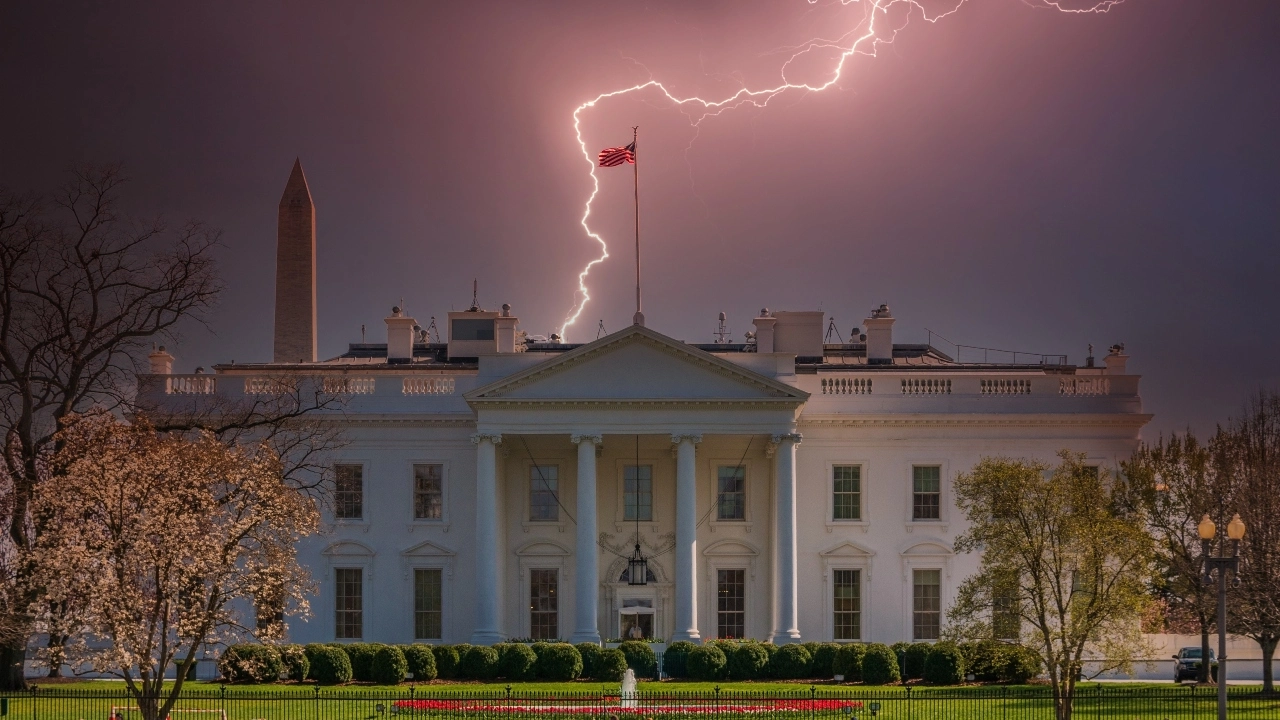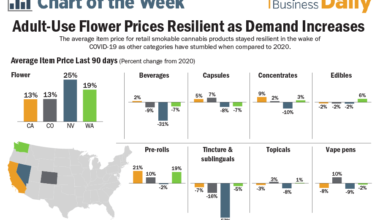When is President Donald Trump going to reclassify marijuana – and what will the major change in federal drug policy mean for the $32 billion legal U.S. cannabis industry?
The president gave little insight on the first point in comments this week. But on the second, the implications of downgrading cannabis to a Schedule 3 drug are profound – and could provide a boost to every plant-touching business in the country and beyond.
On Monday, the president confirmed earlier reporting that he’d told attendees at a $1 million per plate fundraiser he plans to revisit the Biden-era proposal, on indefinite pause January, to relax federal restrictions on cannabis.
“We’re looking at it,” said Trump, noting that expects to determine whether cannabis will be reclassified in the next few weeks.
What is the marijuana rescheduling process?
Trump inherited unfinished business when he was sworn in to serve a second White House term in January: the first reevaluation of cannabis’ status under federal law since 1970.
Kicked off by former President Joe Biden in October 2022, the Cabinet-level review of federal marijuana policy led to the revolutionary Aug. 2023 finding from the Department of Health and Human Services that the drug has a “currently accepted medical use” in the United States.
However, a subsequent May 2024 Justice Department proposal to move marijuana to Schedule 3 of the Controlled Substances Act – down from Schedule 1, the official government list of the most dangerous and addictive drugs – has remained in limbo since Trump took office.
That’s partly because of the glacial pace the process saw under Biden. Critics, including supporters of cannabis reform, complained that Biden’s Drug Enforcement Administration was resisting the change.
According to a since-dropped lawsuit brought by pro-rescheduling physicians and researchers, the DEA went so far as to influence scheduled hearings before the agency’s top administrative judge to keep cannabis in Schedule 1.
What can the Trump administration do?
Those hearings – and a decision on the reclassification proposal – were paused just before Trump took office.
They can be resumed at any time.
They can also be canceled – and the proposed change in federal law be accepted or rejected, regardless.
Federal law grants sole discretion on all of the above to the head of the DEA, who is free to accept or ignore the result of any hearings, should they be resumed.
Terrance Cole, the new DEA chief, is a former top agency official who served an anti-marijuana governor in his most recent government post.
However, Cole is expected to follow White House direction on the subject.
What does Donald Trump want?
That leaves it up to the president and his advisers – whom the cannabis industry has been attempting to influence with hefty political contributions, strategic Trump-friendly hires and praise for the president.
The charm campaign is likely led to the promise, which the Wall Street Journal and CNN reported Trump made to attendees at a $1 million-per-plate fundraiser at his New Jersey golf club, that he will consider the Biden-era rescheduling question.
That promise followed a campaign-trail endorsement of both medical cannabis as well as an adult-use legalization campaign in Florida, where the president is registered to vote.
But not even Trump’s seal of approval could convince 60% of voters to embrace Amendment 3. And in a rare show of disobedience, the Florida Republican Party campaigned against it.
Similarly, Trump will be asked to defy many top voices within his Make America Great Again (MAGA) movement, some of whom see cannabis a left-coded issue.
Trump is also a teetotaler who is said to loathe the odor of cannabis, which is more prevalent than ever in both his native New York City as well as his adopted home of Florida.
“Some people like it, some people hate it,” the president said Monday. “Some people hate the whole concept of marijuana.
“It does bad for the children. It does bad for people who are older than children.
“It’s a very complicated subject, as you know, the subject of marijuana. I’ve heard great things having to do with medical. And I’ve heard bad things having to do with just about everything else.”
What would rescheduling marijuana do?
Moving cannabis to Schedule 3 would be the first major change in the U.S. government’s approach to the drug since 1970, when President Richard Nixon helped kick off the war on drugs by signing the Controlled Substances Act into law.
It would free plant-touching cannabis companies from the federal income tax penalties required by Internal Revenue Code Section 280E, which forbids normal business deductions for any organization “trafficking” in Schedule 1 or 2 drugs.
That could mean hundreds of millions of dollars in tax relief for cannabis companies.
Some marijuana firms, such as Trulieve Cannabis, claim to have already received 280E-related tax relief through filing amended returns despite warnings from tax attorneys that the strategy is risky as long as cannabis stays in Schedule 1.
The IRS has publicly reminded taxpayers that 280E applies “(u)ntil a final federal rule is published.”
“Taxpayers seeking a refund of taxes paid related to Internal Revenue Code Section 280E by filing amended returns are not entitled to a refund or payment,” the agency said in a June 2024 statement.
“This applies to businesses that sell marijuana, even if they operate in states that have legalized the sale of marijuana.”
Subscribe to the MJBiz Factbook
Exclusive industry data and analysis to help you make informed business decisions and avoid costly missteps. All the facts, none of the hype.
What you will get:
- Monthly and quarterly updates, with new data & insights
- Financial forecasts + capital investment trends
- State-by-state guide to regulations, taxes & market opportunities
- Annual survey of cannabis businesses
- Consumer insights
- And more!
What would marijuana rescheduling not do?
Cannabis companies would welcome the tax relief.
And many expect a warmer reception from financial institutions and institutional investors.
However, other major advancements, such as interstate commerce, would require more action from the White House or Congress.
Banks may determine that they’re still not willing to run the risk of offering basic services to companies producing and selling a Schedule 3 drug that’s not Food and Drug Administration-approved.
All other Schedule 3 drugs sold legally in the U.S. are FDA approved and sold at DEA-licensed pharmacies.
That still may require Congress to pass some version of the SAFER Banking Act, which would forbid federal banking regulators from punishing banks for offering services to state-legal cannabis companies.
Interstate commerce and listing plant-touching companies on major exchanges would also have to wait for further action from the White House and Congress.
And though state universities and other research institutions may feel more comfortable pursuing cannabis science, some federal barriers to research would remain.
That includes major Trump administration funding cuts as well as the Biden-era Medical Marijuana and Cannabidiol Research Expansion Act.
Though hailed as a major milestone, the research bill contains provisions keeping federal controls on cannabis research intact regardless of its schedule, a loophole that America’s leading anti-cannabis organization Smart Approaches to Marijuana claims to have written.
Shane Pennington, a leading administrative law expert and attorney involved in rescheduling, pointed out that the bill means the DEA research process would likely remain onerous.
However, he said, “Rescheduling marijuana to Schedule 3 actually would facilitate research by reducing stigma, increasing the availability of capital for research and reducing regulatory barriers.”
Chris Roberts can be reached at chris.roberts@mjbizdaily.com.
Medical Disclaimer:
The information provided in these blog posts is intended for general informational and educational purposes only. It is not a substitute for professional medical advice, diagnosis, or treatment. Always seek the advice of your physician or other qualified healthcare provider with any questions you may have regarding a medical condition. The use of any information provided in these blog posts is solely at your own risk. The authors and the website do not recommend or endorse any specific products, treatments, or procedures mentioned. Reliance on any information in these blog posts is solely at your own discretion.






